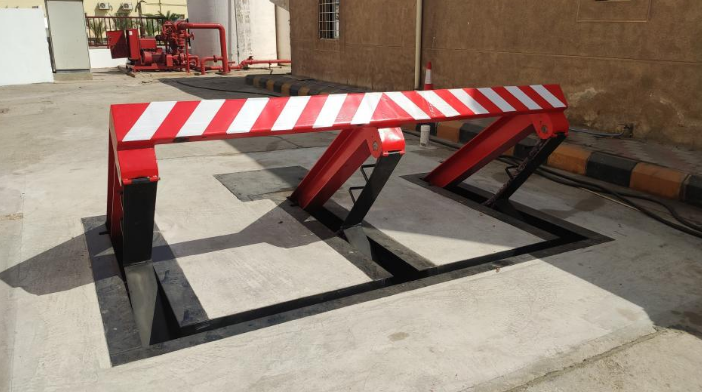Here are the 50 article titles without quotation marks:
In the modern earth, road safety is really a critical issue for equally infrastructure planners and drivers. Traffic incidents and road-related accidents have a significant affect equally lives and economies Hydraulic crash barriers. To address these problems, different road safety systems have already been created, and one of them, hydraulic accident barriers and HCIS-compliant road blocker systems have surfaced as necessary parts for maintaining secure and safe roadways. This informative article goes into the significance of hydraulic accident barriers, HCIS submission, and the makers who are major the charge in building these vital systems.
Hydraulic Crash Barriers: The Backbone of Road Safety
Hydraulic accident barriers are an essential function of modern infrastructure, made to digest and mitigate the affect throughout a collision. These barriers are particularly critical on high-speed streets, where incidents can lead to catastrophic consequences. Unlike old-fashioned barriers, hydraulic accident barriers use sophisticated hydraulic systems that allow them to release rapidly and digest the vitality of a collision more efficiently.
These barriers are generally fitted at proper places like connections, tunnels, or entry details to constrained areas, where there's a high risk of collision. The hydraulic systems let these barriers to work effortlessly by fast adjusting their height and place to stop or manual vehicles from danger.
The principal function of hydraulic accident barriers is to avoid vehicles from veering off the street and crashing into obstacles such as guardrails, traffic get a handle on units, or even pedestrians. They obtain this by preventing the vehicle's movement upon affect, somewhat lowering the potential for injury or fatality.
HCIS Compliance: What It Means and Why It Matters
HCIS (Highway Crash Influence Safety) submission describes some standards and rules that guarantee safety actions for road infrastructure are up to and including particular amount of protection. The HCIS-compliant systems are created to digest the kinetic energy of a collision in ways that decreases injury to car occupants and decreases the affect the vehicle. Submission with one of these safety standards is necessary in lots of places to promise that the systems utilized on the streets match global safety expectations.
Hydraulic accident barriers should adhere to these stringent rules to be deemed HCIS-compliant. A buffer process that doesn't match these standards could be inadequate in avoiding fatalities or serious injuries. The integration of hydraulic systems into road blockers is necessary to comply with the HCIS standards, which are centered on minimizing damage and giving the highest amount of protection for equally car occupants and pedestrians.
For makers, this submission is really a critical standard in building products and services that match global standards, ensuring that the systems could be stationed properly in several road environments. The HCIS guidelines influence a few variables for affect resistance, durability, and the capability of the machine to digest accident causes, making it a crucial factor for equally makers and road authorities.
Key Features of HCIS-Compliant Road Blocker Systems
HCIS-compliant road blocker systems mix sophisticated technologies to produce barriers that effortlessly get a handle on traffic movement while giving protection throughout emergencies. These systems on average consist of an array of parts, including hydraulic barriers, electronic sensors, automatic get a handle on systems, and strengthened materials to ensure optimum strength and reliability.
Influence Resistance: Hydraulic barriers are created to tolerate significant forces. The utilization of hydraulic liquid allows the barriers to regulate to various affect levels, ensuring the buffer reacts effortlessly based on the intensity of the collision. The system's power to digest shock and energy is essential for ensuring HCIS compliance.
Adjustability: Hydraulic road blockers are flexible in height, which allows them to stop vehicles when essential or retract to allow regular traffic flow. This adjustability is an essential function for areas that need to regulate car accessibility, such as government buildings, airports, and embassies.
Longevity and Preservation: One of the most critical facets of HCIS-compliant systems may be the durability of the materials used. These barriers should tolerate weather, wear, and rip from continuous use. Normal maintenance and improvements to the hydraulic process make certain that the barriers carry on to execute at their maximum level.
Automation and Control: Modern hydraulic accident barriers could be automated, permitting remote function and real-time checking of traffic conditions. This function is particularly helpful in preventing usage of constrained areas, such as checkpoints or painful and sensitive zones, with minimal human intervention.
Safety and Security: Besides avoiding incidents, hydraulic road blockers also may play a role in giving safety against unauthorized access. They are usually used in conjunction with surveillance systems, enabling authorities to regulate entry details and guarantee the safety of painful and sensitive infrastructure.
Manufacturers Leading the Way in Hydraulic Crash Barriers and Road Blocker Systems
The demand for hydraulic accident barriers and HCIS-compliant road blocker systems keeps growing global, sparked by the increasing emphasis on road safety and security. A few makers have reached the forefront of giving sophisticated, top quality alternatives for modern infrastructure needs. These makers focus on providing systems that comply with global standards while handling the precise wants of each region.
Delta Medical Business: As among the major makers of car barricade systems, Delta Medical Business specializes in high-speed, HCIS-compliant hydraulic road blockers. Their systems are used in critical infrastructure places such as military angles, airports, and embassies, where equally high safety and car safety are paramount. Delta's items are manufactured to meet and surpass certain requirements set by the HCIS standards, giving durable and trusted alternatives for road safety.
Heald Ltd: Located in the United Kingdom, Heald Ltd has generated a popularity for providing revolutionary, crash-rated road blocker systems. Heald's hydraulic barriers are created to end vehicles from breaching safety perimeters while maintaining an easy traffic flow. Their items are particularly known for their powerful efficiency and submission with global road safety and safety standards, including HCIS regulations.
Safety Barriers International: Safety Barriers International focuses on producing hydraulic road blockers which are equally powerful and eco-friendly. Their HCIS-compliant systems are designed for long-term use, with the ability to operate in several weather conditions. They use top quality materials to guarantee the durability and affect resistance of these barriers, which are vital for the safety of road users.
Mifram Security: With decades of experience in the area of safety alternatives, Mifram Security makes a wide selection of accident barriers and road blockers. Their hydraulic systems are developed to tolerate high degrees of force, giving powerful protection for equally workers and vehicles. The organization is devoted to building products and services that match or surpass the safety standards necessary for HCIS compliance.
A-SAFE: A-SAFE has obtained an international popularity for the focus on the production of safety barriers and protection systems. Their hydraulic accident barriers give powerful protection for streets while being certified with different safety standards, including HCIS. Their alternatives are employed across a wide selection of industries, from transportation hubs to industrial sectors, ensuring that road safety and safety wants are met with the highest standards.
The Future of Hydraulic Crash Barriers and Road Blockers
As road safety remains to evolve, the technology behind hydraulic accident barriers and HCIS-compliant road blocker systems will likely continue steadily to improve. Improvements in materials research, automation, and energy absorption technologies will further enhance the success and performance of these systems. Additionally, as urbanization and infrastructure complexity increase, the need for sophisticated, trusted, and certified road safety systems will simply grow.
To conclude, hydraulic accident barriers and HCIS-compliant road blocker systems symbolize the innovative of road safety and safety technology. The makers who make these systems play a crucial position to make our streets safer by ensuring that infrastructure meets the highest standards of safety. These systems not only defend human lives but provide critical safety for painful and sensitive sites and areas. As technology remains to development, we are able to assume much more innovative and powerful methods to arise, creating road safety even better made in the decades to come.


Comments
Post a Comment